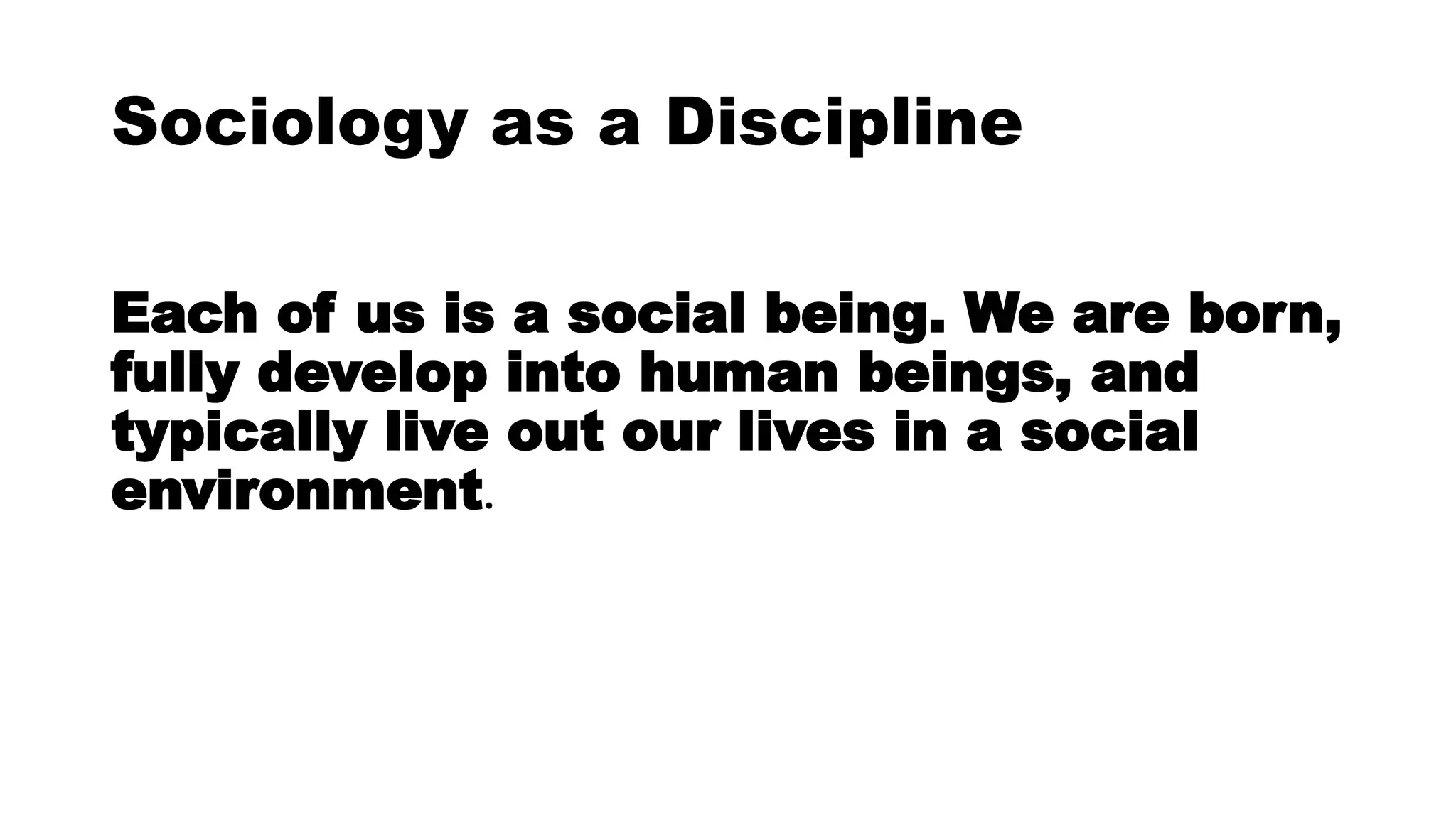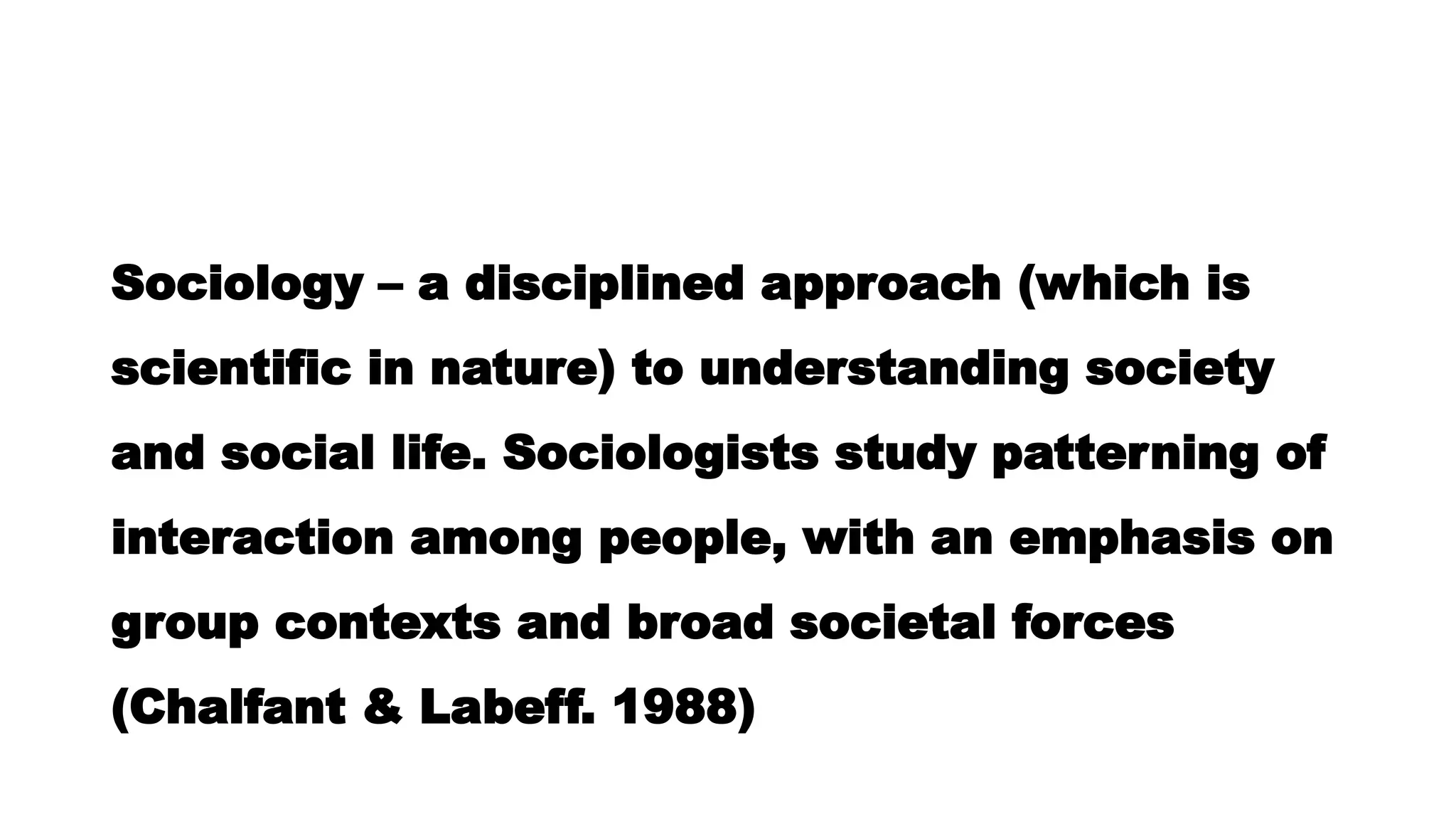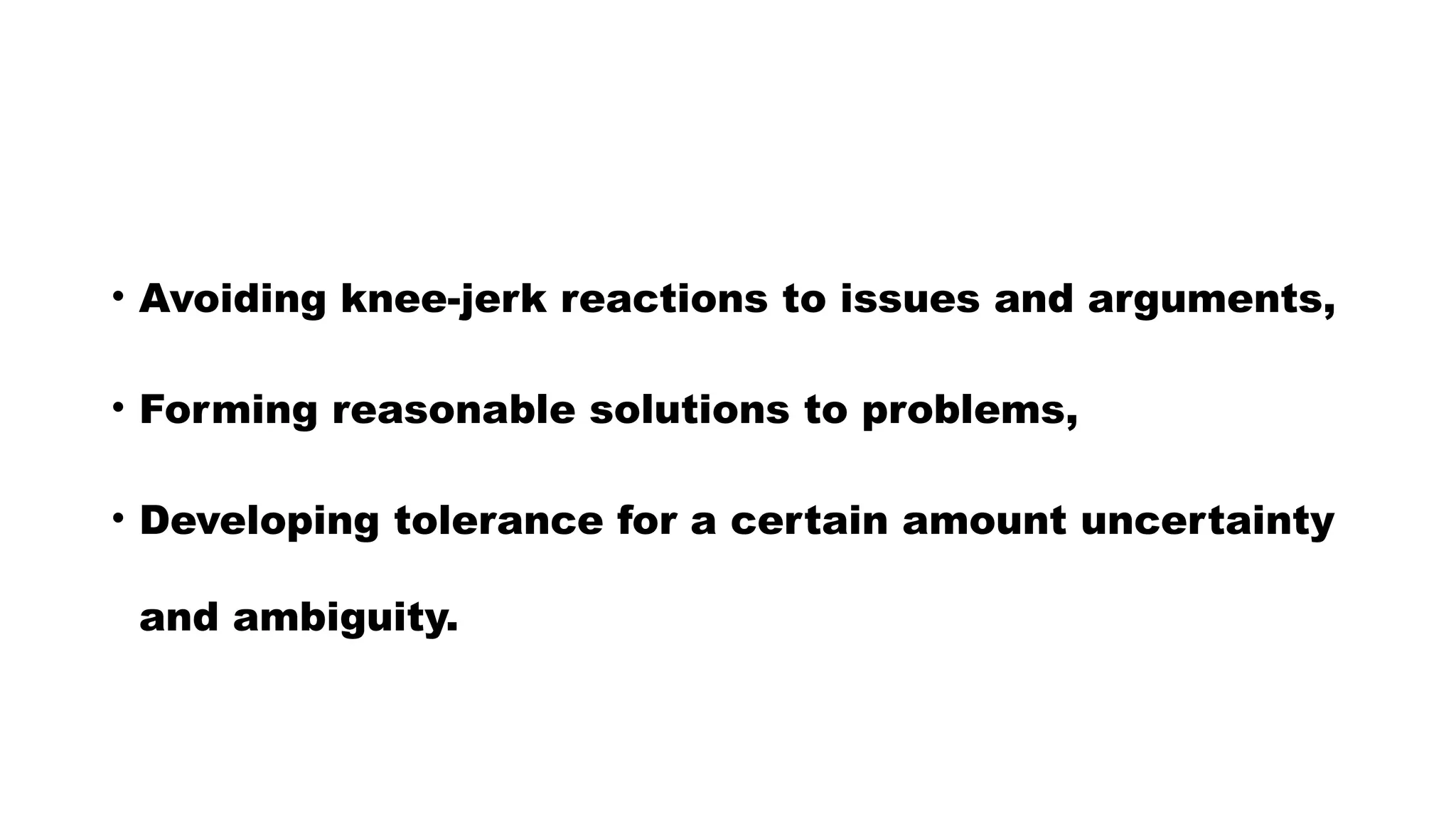The document provides an overview of sociology, defining it as the systematic study of society and social interactions, with a focus on group contexts rather than individuals. It emphasizes the importance of sociological thinking, which includes critical analysis and assessment of social issues, shaping health and care practices by considering social factors. Additionally, it discusses key figures in sociology, pioneering concepts like social integration and class conflict, while contrasting personal troubles with public issues to highlight the influence of societal structures on individual experiences.




![What is Sociology?
Sociology is the systematic study of
society and social interaction
[Kendal 2012].](https://image.slidesharecdn.com/unit1-240821164119-baffadf4/75/Unit_1-_Introduction_to_Sociology_-Autosaved-pptx-5-2048.jpg)





![Common sense refers to ideas that are so
completely taken for granted that they have
never been seriously questioned and seen to
be sensible to any reasonable person
[Ballantine & Roberts 2015]](https://image.slidesharecdn.com/unit1-240821164119-baffadf4/75/Unit_1-_Introduction_to_Sociology_-Autosaved-pptx-11-2048.jpg)












































